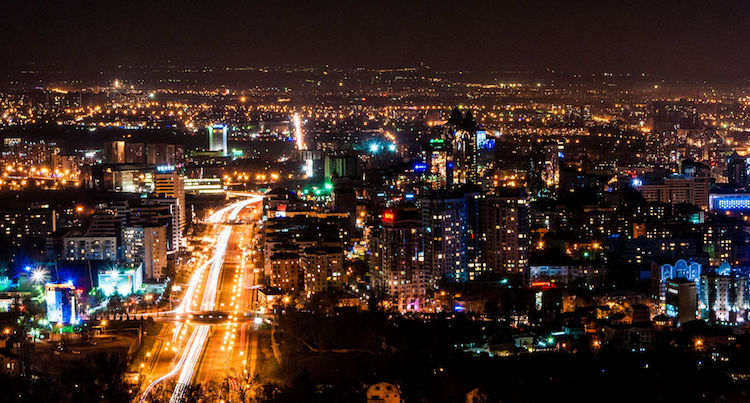By Devinder Kumar
NEW DELHI (IDN) – Within days of being elected as non-permanent member of the UN Security Council for two years beginning January 1, Kazakhstan has affirmed its “commitment to work in partnership to address the critical social and economic development needs of the people of North and Central Asia”.
An agreement for the purpose was signed on July 11 in Bangkok between the United Nations Economic and Social Commission for Asia and the Pacific (ESCAP) and the Government Kazakhstan. GERMAN | HINDI | JAPANESE | SPANISH
Under the Agreement, which supplements the Host Country Agreement, the Government of Kazakhstan has committed to provide the premises for the ESCAP’s Subregional office for North and Central Asia (SONCA), along with a recurring annual grant for operational and programme costs of the office.
The office was opened in Almaty – the major commercial centre of Kazakhstan – on July 5, 2011 upon the initiative of the Government of Kazakhstan and in line with a United Nations General Assembly Resolution, to better address development priorities of Member states, and to strengthen regional cooperation and integration for accelerating progress towards achieving inclusive and sustainable development.
Marat Yessenbayev, Ambassador Extraordinary and Plenipotentiary of Kazakhstan to Thailand and Permanent Representative to ESCAP described the opening ceremony as “an important step in the expansion and deepening of cooperation between ESCAP and the countries of North and Central Asia”.
“This is especially important given the fact that Kazakhstan has become a non-permanent member of the UN Security Council,” he said. “This imposes on Kazakhstan even greater responsibility in our work in different UN institutions. I am confident that the signing of today’s agreement will give a new impetus to the implementation of both existing and new projects and programs of the United Nations for the development of North and Central Asia,” he added.
ESCAP Executive Secretary Dr. Shamshad Akhtar, who is also UN Under-Secretary-General, said: “Today’s signing ceremony marks an important step in our journey towards making a meaningful contribution to the development of the North and Central Asian subregion.”
She added: “The conclusion of this Agreement cements the status of the office and provides assurances for its continued functioning, reinforcing the proposed role of Almaty as the hub for United Nations offices in Central Asia. We are grateful to the Government of Kazakhstan for its generous support to the Office.”
SONCA works with Armenia, Azerbaijan, Georgia, Kazakhstan, Kyrgyzstan, the Russian Federation, Tajikistan, Turkmenistan and Uzbekistan – using its normative and analytical work, policy advocacy and capacity-building activities, as well as promotion of regional cooperation to help speed up regional progress towards the Sustainable Development Goals (SDGs).
Afghanistan also participates in the activities of the North and Central Asia as a member of the United Nations Special Programme for the Economies of Central Asia (SPECA) that was launched in 1998 to strengthen subregional cooperation in Central Asia and its integration into the world economy.
SPECA countries, in addition to Afghanistan, are Azerbaijan, Kazakhstan, Kyrgyzstan, Tajikistan, Turkmenistan and Uzbekistan. The United Nations Economic Commission for Europe (UNECE) and the ESCAP provide overall support to the Programme.
SPECA’s strategic importance makes Central Asia a unique region within the UNECE area: It plays a significant role in the energy security of Europe and Asia, it is a potential transport hub between the two continents and plays an active role in the fight against global security challenges such as terrorism, religious extremism or drug trafficking.
The Central Asian countries are confronted with challenges emerging from the fact that all of them are land-locked, follow divergent paths of economic development and there is a rapidly growing gap between the income levels of energy exporting and non-energy exporting states.
All of these states, therefore, face an urgent task of diversifying their economies, moving away from their present status of energy and commodity exporters. Strengthening regional cooperation is a key precondition for the rapid, balanced and sustained economic development of all the countries of the region.
According to experts, they require close regional cooperation in order to fully capitalize on their strategic advantages and fight jointly and effectively the challenges that can potentially de-stabilize the region. [IDN-InDepthNews – 11 July 2016]
IDN is flagship agency of the International Press Syndicate.
Photo: Almaty at night. Credit: Wikimedia Commons
This article is part of IDN’s media project jointly with Global Cooperation Council and DEVNET Japan.

